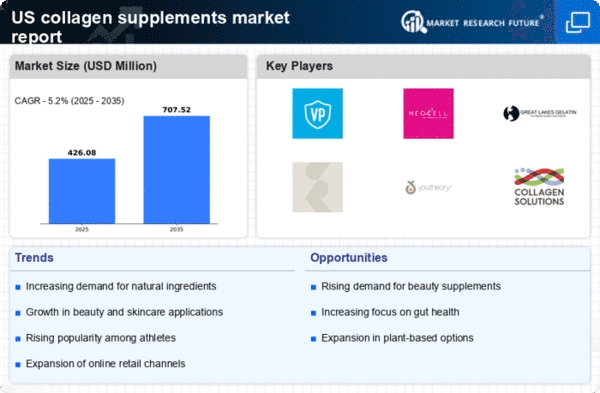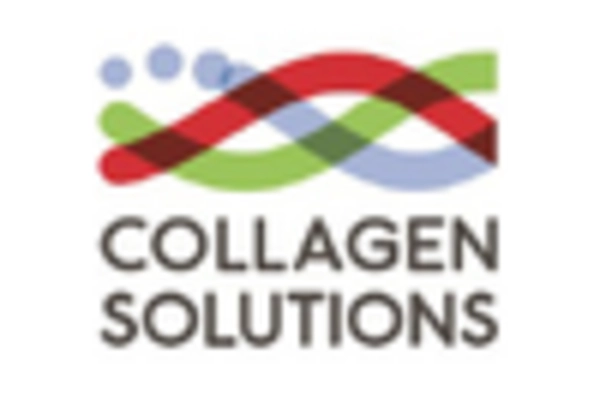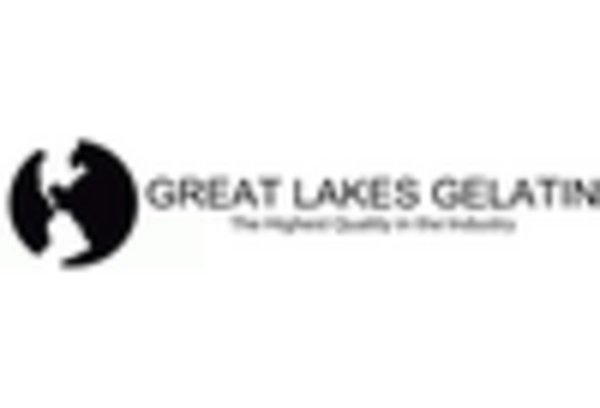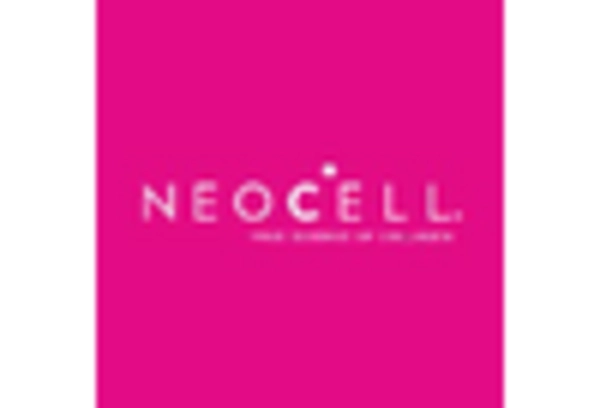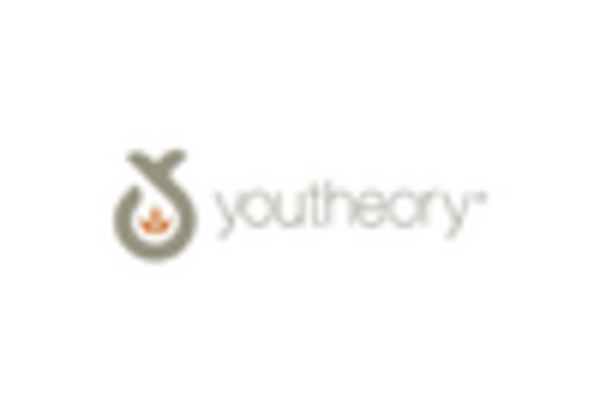Expansion of Retail Channels
The expansion of retail channels is a crucial driver for the market. With the increasing availability of these products in various retail formats, including health food stores, pharmacies, and online platforms, consumer access to collagen supplements has improved significantly. E-commerce, in particular, plays a vital role, as it allows consumers to conveniently purchase products from the comfort of their homes. Recent data indicates that online sales of collagen supplements have surged by over 25% in the past year alone. This trend is expected to continue, as more consumers turn to online shopping for health and wellness products. Retailers are also enhancing their in-store experiences, providing educational resources and product sampling to engage consumers. Consequently, the collagen supplements market is benefiting from a broader distribution network, making it easier for consumers to incorporate these products into their daily routines.
Growing Awareness of Skin Health
The increasing awareness of skin health among consumers is a pivotal driver in the collagen supplements market. As individuals become more informed about the benefits of collagen for skin elasticity and hydration, demand for these products surges. Research indicates that the skin care segment of the collagen supplements market is projected to grow at a CAGR of approximately 8% from 2025 to 2030. This trend is particularly pronounced among millennials and Gen Z consumers, who prioritize skin health and beauty. The rise of social media influencers promoting collagen products further amplifies this awareness, leading to a broader acceptance and consumption of collagen supplements. Consequently, brands are innovating to offer diverse formulations that cater to this growing consumer base, thereby enhancing their market presence.
Rise of Preventive Health Trends
The rise of preventive health trends is a significant driver in the market. Consumers are increasingly adopting proactive approaches to health and wellness, seeking products that not only address existing issues but also prevent future health concerns. Collagen supplements are perceived as a means to support overall well-being, including joint health, skin vitality, and gut health. This trend is particularly evident among younger consumers who prioritize long-term health benefits. Market data suggests that nearly 60% of collagen supplement users are motivated by preventive health considerations. As awareness of the importance of preventive health continues to grow, the collagen supplements market is likely to expand, with brands focusing on educating consumers about the long-term benefits of collagen supplementation.
Innovations in Product Formulation
Innovations in product formulation are reshaping the collagen supplements market. Manufacturers are increasingly developing advanced formulations that enhance bioavailability and efficacy, such as hydrolyzed collagen peptides and collagen-infused beverages. These innovations not only improve the absorption of collagen but also expand the range of product offerings available to consumers. The market for liquid collagen supplements, for instance, is experiencing rapid growth, with a projected increase of 15% annually. This diversification allows brands to cater to various consumer preferences, from powders to ready-to-drink options. Additionally, the incorporation of complementary ingredients like vitamins and minerals further enhances the appeal of these products, positioning them as holistic health solutions. As a result, the collagen supplements market is witnessing a dynamic evolution driven by consumer demand for innovative and effective products.
Aging Population and Health Consciousness
The aging population in the United States significantly influences the collagen supplements market. As individuals age, the natural production of collagen declines, leading to visible signs of aging such as wrinkles and joint pain. This demographic shift has prompted a surge in demand for collagen supplements, as older adults seek solutions to maintain their health and vitality. According to recent estimates, the segment of consumers aged 50 and above accounts for nearly 40% of the collagen supplements market. This trend is likely to continue, as health consciousness among older adults drives them to invest in products that promote joint health and skin rejuvenation. The market is thus adapting to cater to this demographic, offering specialized formulations that address the unique needs of aging consumers.
.png)

